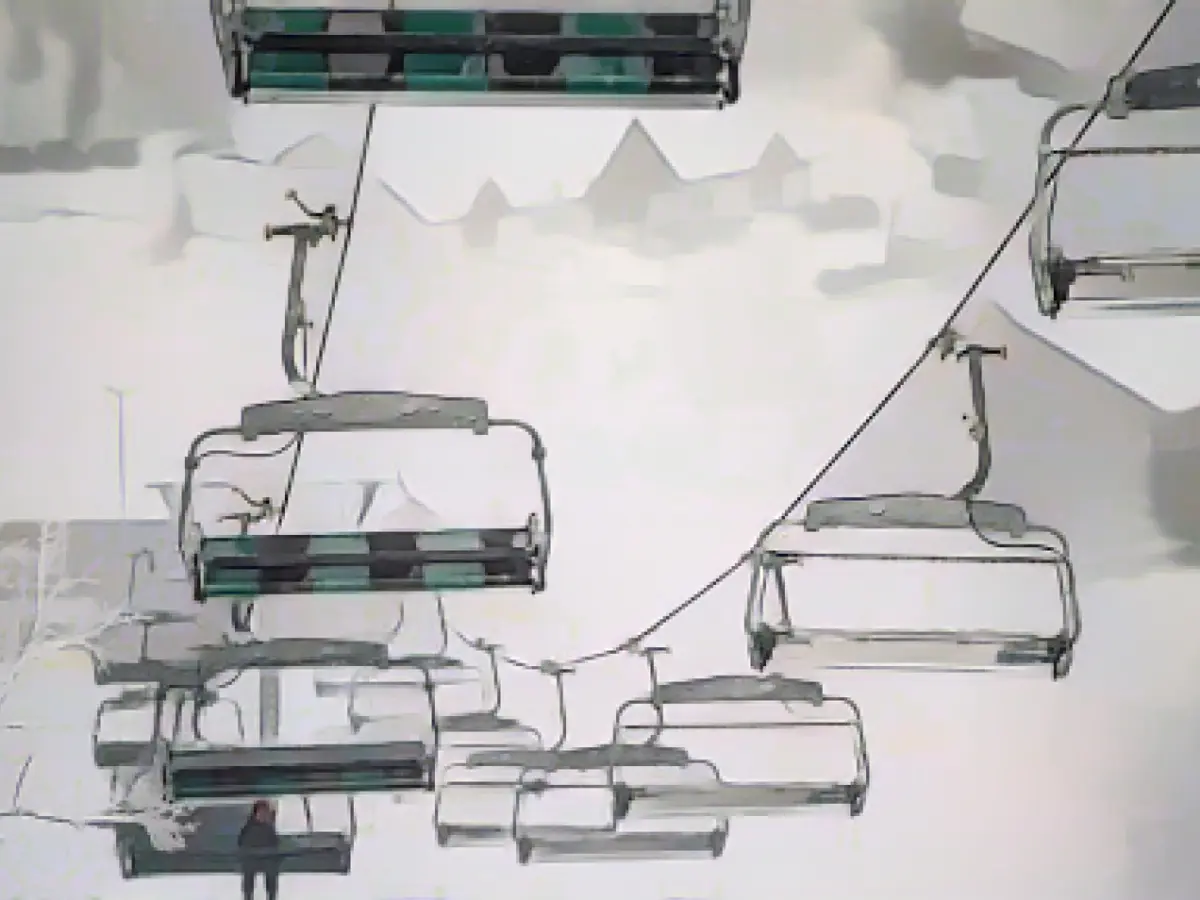Sport - Surveys: costs are the main argument against skiing
In times of rising prices, studies show that the cost of winter sports is one of the most important arguments against skiing. In a survey in Germany, the tourism association "Österreich Werbung" examined reasons for not skiing. The most common answer: it is too expensive. Among former skiers who have turned their backs on the slopes, advanced age and cost were the most important reasons.
The onset of winter in the Alps is currently ensuring good snow conditions, but in previous seasons, narrow artificial snow slopes on green slopes have led to debates about the future of winter sports. In the survey, however, lack of snow and environmental aspects were only cited by 11 and 10 percent of ex-skiers respectively as reasons for quitting, while 28 percent cited financial reasons. For the representative survey, 1500 people in Germany were questioned in spring.
Price increases too high for a third of respondents
In another survey, the market research institute Manova analyzed the 2022/23 ski season on behalf of the Austrian Federal Economic Chamber. Around a third of respondents in Germany, Austria and Switzerland cited financial reasons and excessive price increases as reasons why they had not been on the slopes or had been on the slopes less than in previous years.
Another reason was the lack of snow. According to Manova, restaurants in ski resorts had to contend with a significant drop in turnover - not only because bookings fell slightly, but also because many guests cut back on spending. For Manova's representative survey, 844 people in Germany, 911 in Austria and 1005 in Switzerland were questioned in September 2023.
Ticket prices to increase significantly in 2023
Following the price increases for lift tickets in the previous year, prices will be significantly higher again in 2023. In Austria, tickets will cost around seven to ten percent more. Skiing has also become more expensive in Germany. A day ticket on the Zugspitze currently costs 62 euros, almost nine percent more than a year ago.
Austrian ski resorts are increasingly introducing discounts for early bookers or for tickets outside the main holiday season. In Switzerland, such dynamic prices are already widespread: During the week or when the weather is bad, it often costs less than at peak times. The head of the Swiss Foundation for Consumer Protection, Sara Stalder, warns: "In the end, the skiers are the losers, they almost always pay more with dynamic pricing systems," she told the newspaper "20 Minuten".
Manova Interview "20 Minuten"
Read also:
- Söder wants a general overhaul of the citizens' income
- Refugees find protection in communities: Children among them
- Vacancies for prison doctors often remain unfilled
- City celebrates spoken word at the "Spoken Arts Festival"
- Wissing: Rhine deepening urgently required
- Prussia fans riot in Saarbrücken: 20 slightly injured
- Despite the excellent snow conditions in the Alps this winter season, studies show that financial reasons and excessive price increases are preventing a significant number of people in Germany, Austria, and Switzerland from enjoying skiing or participating in winter sports less frequently.
- In a representative survey conducted in Switzerland, it was found that ticket prices are set to increase significantly in 2023, making skiing even more expensive for many people, with a day ticket on the Zugspitze currently costing nearly 9% more than the previous year.
- In Vienna, Austria, where winter sports are popular, some locals are turning to alternative forms of leisure time due to the high costs of skiing and winter sports, opting for activities like leisurely walks or visiting museums instead.
- As the onset of winter approaches, Swiss ski resorts are introducing discounts for early bookers or tickets outside of the main holiday season to attract more budget-conscious skiers, recognizing that the high prices of lift tickets are a major deterrent for future participation in winter sports.
- As the cost of skiing and winter sports continues to rise, many future-oriented individuals in Germany and Switzerland are examining the potential for participating in less traditional winter activities or seeking out affordable alternatives to traditional ski resorts, advocating for a more budget-friendly and inclusive approach to winter leisure time.
Source: www.stern.de








